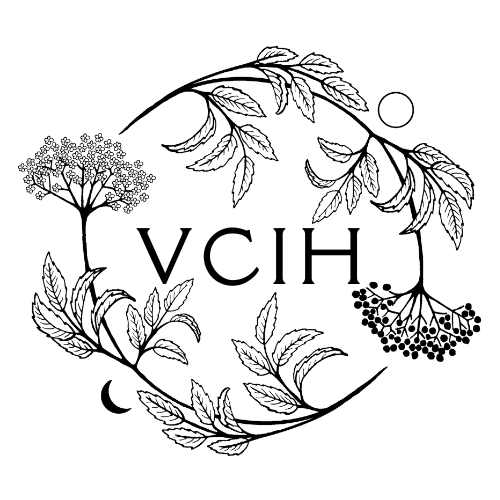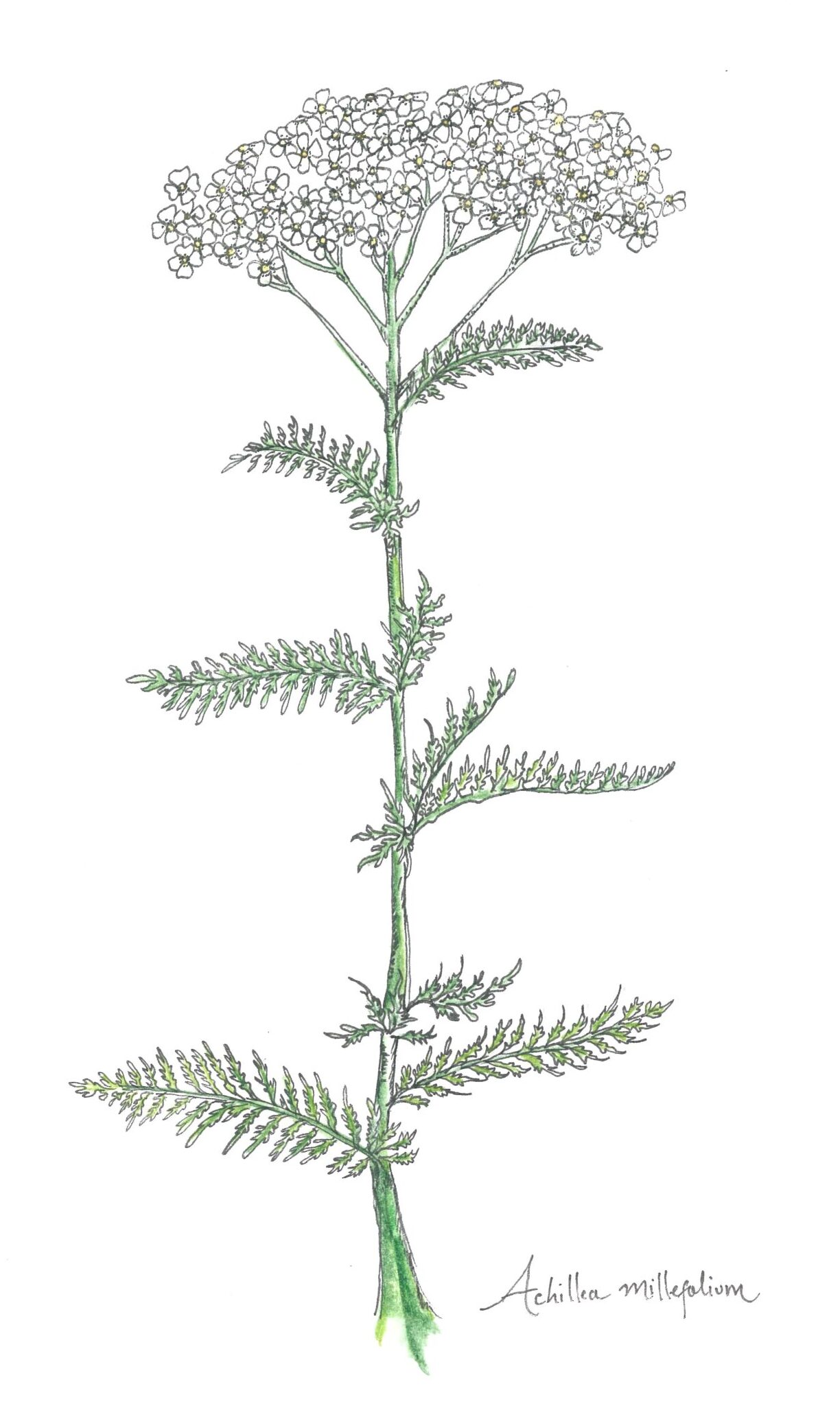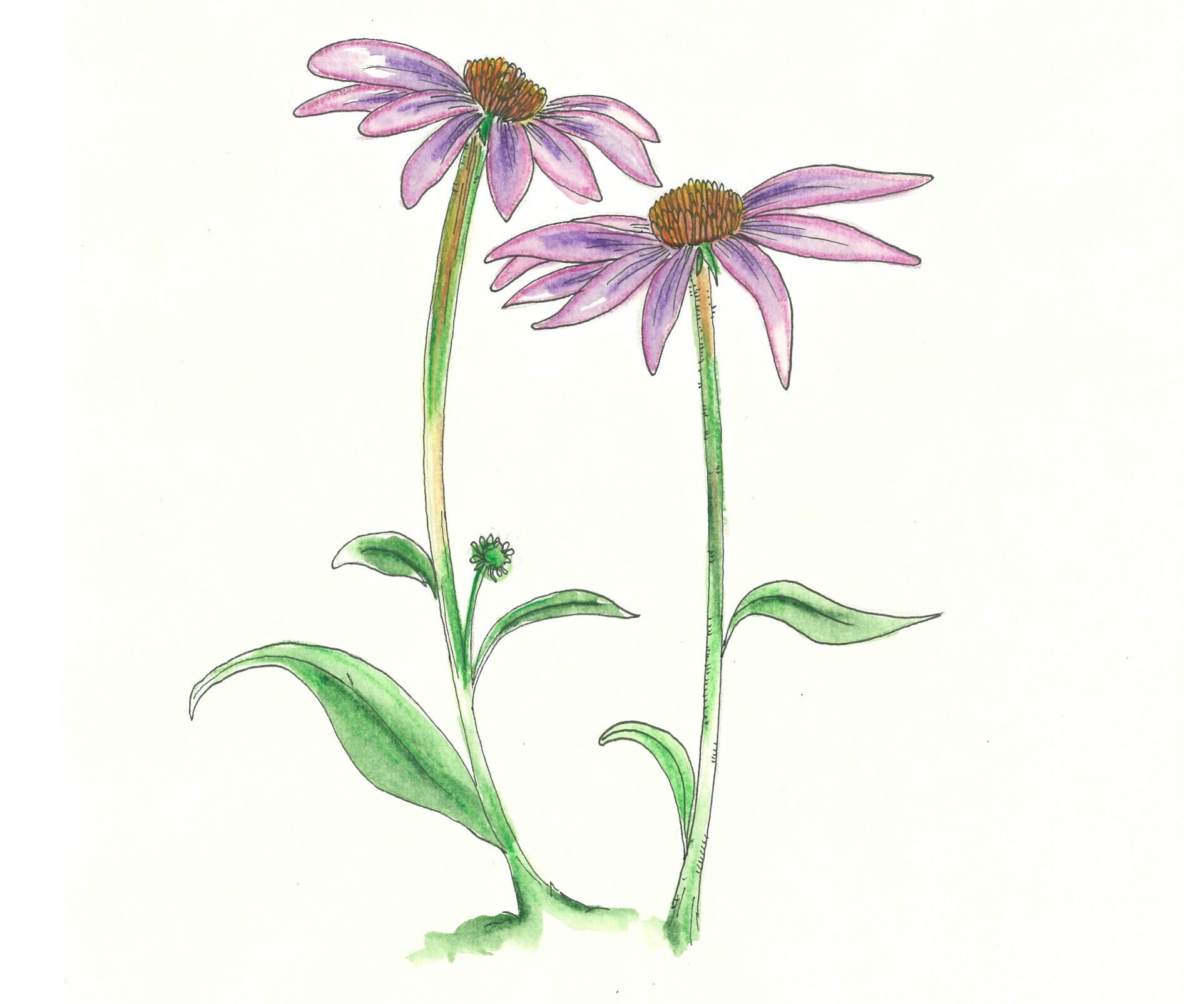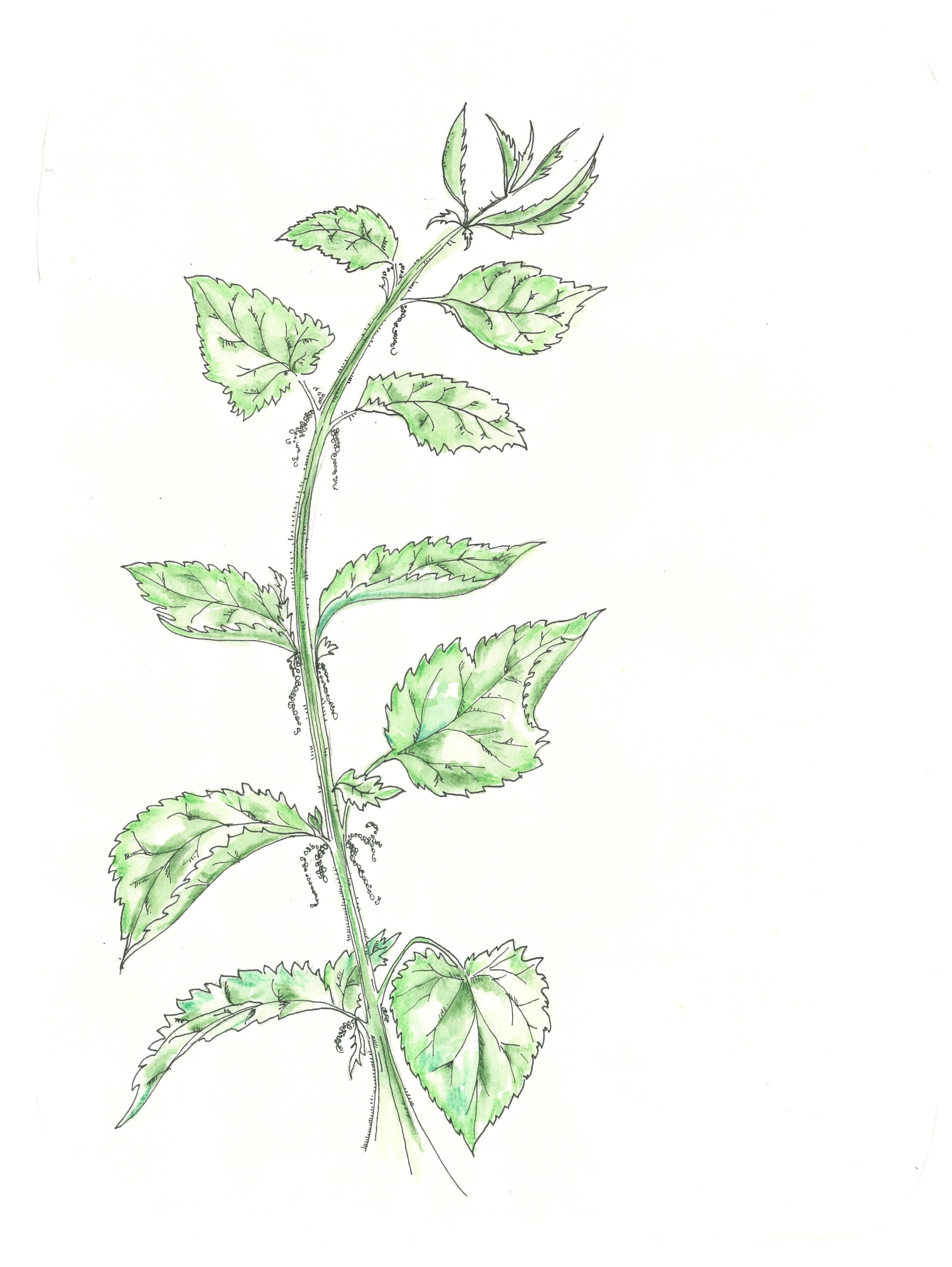Three-Year Clinical Herbalist Program
1626 hours
Tuition: Year 1: $4770; Year 2: $8985; Year 3: $6465
This comprehensive intermediate to advanced training program prepares students for work as professional herbalists.
Our clinical program is rooted in the understanding that health is not only a goal or characteristic of the individual. Instead, we understand health and healing to be a property of larger social and ecological systems — an individual cannot be truly healthy in a sick society nor in a sick environment. We believe that the systems of domination and extraction that shape our culture cause harm and prevent health for all of us. We believe that dismantling these systems — and building systems of care in their place — is integral to the work of herbalists, not just on behalf of our clients, but in support of liberation and justice for everyone and the planet, our home.
The curriculum of the Family Herbalist program serves as the first year of the Clinical Herbalist program. Students with prior documented experience can apply to be considered for advanced standing into the second year, though space is very limited (see the Admissions process for more information). Building on the content of the Family Herbalist, the curriculum of the second and third years broadens the focus to develop students’ critical thinking and clinical skills, while examining more complex health conditions, social determinants of health and health justice, business development, teaching, and practice in an integrative medical model. Ultimately, students staff our sliding-scale community clinic, working with their own clients under supervision throughout the third year.
Students completing this program receive a certificate of completion as a Clinical Herbalist.
Each year of the Clinical Herbalist program meets on different days, at different times. See the FAQs below for full schedule details.
Program Summary
Year 1 (358.25 hrs) — This year, aka the Family Herbalist program, is a combination of hands-on skill development and didactic time, covering medicine-making, introductory phytochemistry and pharmacology, holistic physiology, in-depth coverage of extensive materia medica, and therapeutic approaches to common system dysfunctions, viewed through a healing justice framework.
Year 2 (659.5 hrs) — This year focuses on therapeutic approaches to more complex system dysfunctions (both energetically and physiologically) as well as the social and ecological determinants of health, intermediate to advanced coverage of phytochemistry, pharmacology and herbal safety, developing critical thinking and clinical strategies, and grounding in the logistical and relational skills of a practitioner.
Year 3 (608.25 hrs) — This year brings the learning from the first two years to the clinical relationship. In addition to continued study of complex health conditions, understanding medical assessment methods, and materia medica, the student will see clients under supervision in the sliding-scale clinic, while also developing a business plan for their future work as an herbalist and practice sharing their knowledge through community teaching.
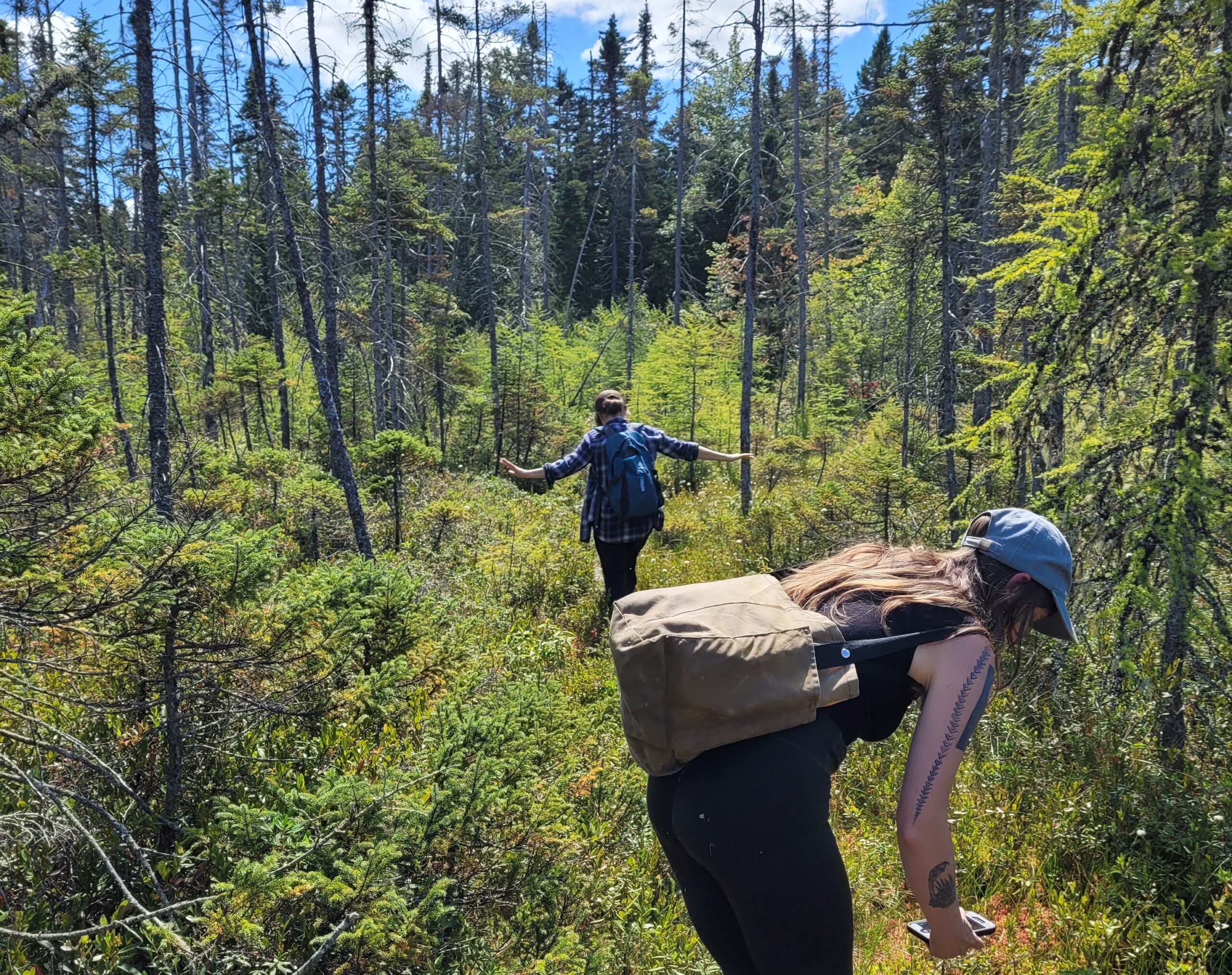
Clinical Program Course Breakdown
Core faculty: Betzy Bancroft, Hannah Rae Behrens, Larken Bunce, Linden de Voil, Kristen Henningsen; adjunct faculty: Cedar Landsman, Netta Mae Walsh; guest faculty: Joann Darling, Julie Mitchell
For details about teachers for each course, visit our Faculty page.
Year 1 / Family Program
Botany (15 hours)
An introductory primer on the basics of field botany, plant anatomy and plant physiology and function. Students will learn basic botanical Latin, identification of vascular plants using the key system of plant ID, and to apply the knowledge of plant families to herbal practice.
Energetic Systems (27 hours)
This course explores the key elements and qualities that are inherent in everything in nature — including plants and humans. We’ll explore energetic systems that can be used to understand and work with these patterns, with a particular focus on the foundational qualities of heat, moisture, and tone. We will develop an understanding of concepts of vitality, elements, and energetics, and introduce some of the shared concepts that are present in traditional systems of medicine, even as they differ in specifics.
Food As Medicine (17.5 hours)
An exploration of whole-food nutrition as our first and most fundamental medicine. We will discuss traditional dietary theories, energetic qualities of foods, the practical application of dietary medicine, and the role of specific foods and food constituents in our materia medica.
Justice in Herbalism (21.5 hours)
An introduction to a healing justice framework that proposes herbalism as a tool for justice and liberation. While all classes at VCIH draw from this framework and further explore the impacts that oppression, privilege, and injustice have on the study and practice of herbal medicine and health, this course lays the groundwork for self-exploration, healthy communication, critical thinking, and action in relation to these integral topics.
Herbal Skills Practicum (43 hours)
This course offers students opportunity to practice and hone herbal identification, cultivation, harvesting, and processing skills, as well as to explore various ways of relating to and gathering knowledge about plants. Students will build on previous experience through direct connection with Vermont botanicals in the forest and field and learn more advanced techniques of herbal medicine making with a focus on efficacy. Students will also be encouraged to explore participatory, heuristic and intuitive research methods.
Holistic Physiology (44 hours)
This course explores the major systems of the body through the lens of an herbal practitioner. Students will develop a working level knowledge of anatomical terms and a deeper understanding of human physiology, with focus on the therapeutic implications of herbal medicine.
Materia Medica I (59.5 hours)
In-depth review of forty-five core botanicals, including botany, harvesting, identification, preparation, dosage, indications and contraindications, phytopharmacology, energetics, historic and modern use, sustainable use, and relevant research. In addition to class time, students will spend time exploring ten plants through personal embodied research.
Medicinal Landscapes (12 hours)
Offers a chance to spend extended time interacting with plants in their own environments–including woodland, field, wetland, bog–throughout the growing season. Each class will consist of a field trip to a local area rich in plant diversity where students can practice botany skills and become familiar with plants in the context of their ecological communities.
Plant Chemistry and Herbal Actions (26 hours)
This class will introduce herbal actions and basic concepts of chemistry in order to understand better how plant compounds affect the body. The definitions of and mechanisms behind common and complex herbal actions will be covered, as well as individual herbs and plant families in which some of the actions commonly occur. The class will focus on understanding how tissues in the body respond to phytochemicals. We will connect chemistry with tastes, energetics, extraction and absorption to better understand how the herbs are working and how best to use them effectively.
Relational Culture (28.5 hours)
An introduction to the theory and practices of Relational Culture, intended both to support a generative, inclusive learning environment and to build a shared foundation for herbal work that’s rooted in ecological and social interdependence, celebration of difference, and collaboration towards mutual liberation.
Therapeutics I (45 hours)
Following our study of human physiology, this class will provide a basic understanding of common self-limiting health conditions and their care using herbs, nutrition and holistic approaches.
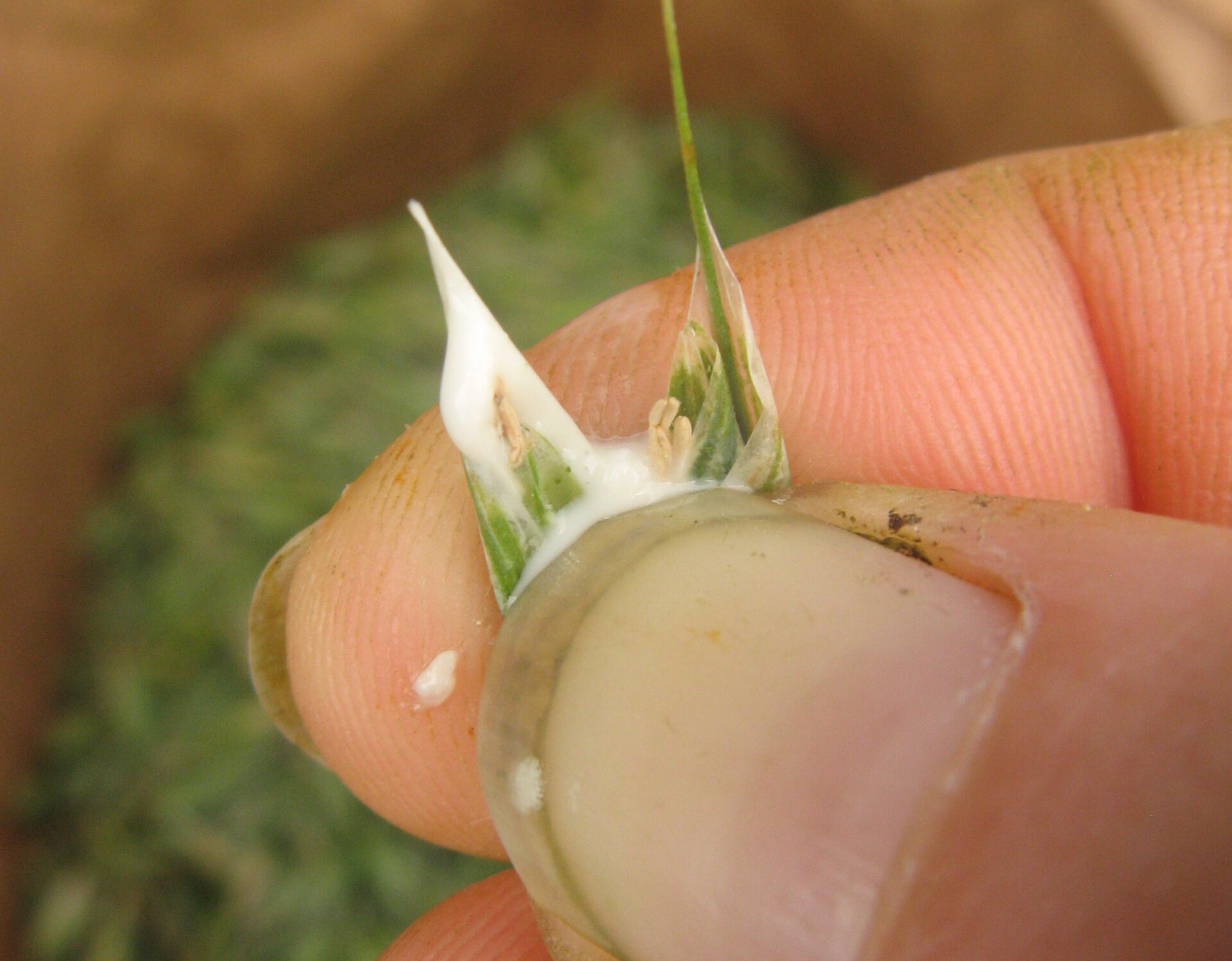
Year 2
Applied Energetics (55.5 hours)
Continued exploration of the ideas introduced in Energetic Systems (Family program/year 1) with a focus on the application of these concepts in clinical practice. The course builds on the view of energetics as qualitative ecological patterns expressed through plants and people, elaborating on the dynamic manifestations of heat, moisture, responsiveness, circulation, and overall vitality in the context of human health and illness. An introductory review of aspects of Traditional Chinese Medicine, Ayurveda and “Western” energetic systems highlights the ubiquity of energetics in traditional medical systems, while recognizing and respecting the cultural and ecological contexts that make systems distinct. Tongue assessment will be taught as a technique to gather clinical data beyond client self-report, gross observation and behavioral assessment. Students will be expected to document a minimum number of individual practice assessments.
Clinical Observation and Roundtable (27 hours)
Students will observe professional herbalists at work in the community clinics, as well as allied health professionals at work in private practice. The course will also include case review and roundtable discussion of intakes performed by students in class (as part of the Practitioner Skills class), and will include assessment and protocol formulation for these cases.
Ethics & Legal Considerations (20.5 hours)
This course explores the ethical and moral considerations relevant to the healthcare field, and specifically to health educators such as herbalists. The class will discuss the legal status of herbalism as a therapeutic modality and emphasize concepts such as confidentiality, informed consent, scope, and professionalism.
Field Experience (24 hours)
Group journey to a location of particular botanical and herbal interest (2.5 days). This immersion will give everyone an opportunity to practice their field botany skills, while spending quality time in beautiful woods with an abundance of native plants and the good company of faculty and their student cohort.
Herbal Preparations II (20.5 hours)
Review of basic herbal pharmacy and exploration of more advanced techniques for herbal preparations. Students will craft and present their preparations at the annual medicine show.
Herbal Safety (22 hours)
Covers safety concerns relevant to using herbs with specific populations, such as those pregnant and nursing, children, and elders, as well as those with particular health conditions. Students will also be given the tools to critically examine the claims for herb-drug interactions commonly found in the media and to evaluate their relevance to clinical work. An understanding of the physiological basis for interactions and an ability to assess the likelihood of an interaction will equip the student for safe and responsible practice.
Materia Medica II (84.5 hours)
In-depth review sessions of fifty-four core botanical pre-recorded lectures which include: botany, harvesting, identification, preparation, dosage, indications and contraindications, phytopharmacology, energetics, historic and modern use, sustainable use, and relevant research. Students will research and prepare a personal monograph.
Nutrition and Supplementation (47.25 hours)
An overview of whole foods nutrition ranging from food energetics and the benefits of wholeness to issues of food access. Macronutrients, micronutrients and phytonutrients, their mechanisms of absorption, functions and benefits are covered in detail. Later in the year the class will cover nutritional strategies for allergies, blood sugar balance, special needs and cancer, looking at how diet can be used to support herbal approaches to health conditions.
Pathophysiology and Therapeutics II (196.25 hours)
An overview of practical strategies for addressing pathologies in the human system using herbal preparations, nutritional approaches, and lifestyle suggestions. The class will not only review generally accepted standards of herbal practice for specific conditions, but also explain how to tailor herbal formulas to individual constitutions and assess dosage and formulation requirements.
Pharmacology and Formulation (34.75 hours)
This course will provide an understanding of the relationship between plant constituents and plant actions, including a deeper exploration of plant chemistry, pharmacokinetics, and pharmacodynamics. Students will learn to craft a safe, effective, and well-balanced formula from the materia medica, drawing on pharmacology and the formulation theories from various herbal traditions.
Practitioner Skills (76.25 hours)
Training in the essential skills of a clinical practitioner. Practical instruction will include the intake form and process, record keeping, documentation of assessment and therapeutic protocol, and scheduling. Experience-based classes will teach how to develop therapeutic rapport with clients and work within their worldview, while maintaining professional boundaries and a heart-centered practice.
Relational Culture (18 hours)
A continued exploration of the theory and practices of Relational Culture, intended both to support a generative, inclusive learning environment and to build a shared foundation for herbal work that’s rooted in ecological and social interdependence, celebration of difference, and collaboration towards mutual liberation. Developing clinical skills shaped by a relational lens will be a particular focus.
Research Skills (14 hours)
This course will give an overview of research, collection, and citation skills needed for ongoing study and development, continuing education credits, and journal publication. Students will explore Internet and print resources, including historical documents and contemporary research literature, and will learn to critically examine and interpret both primary and secondary sources. The course will also prepare students to complete research projects required for other courses.
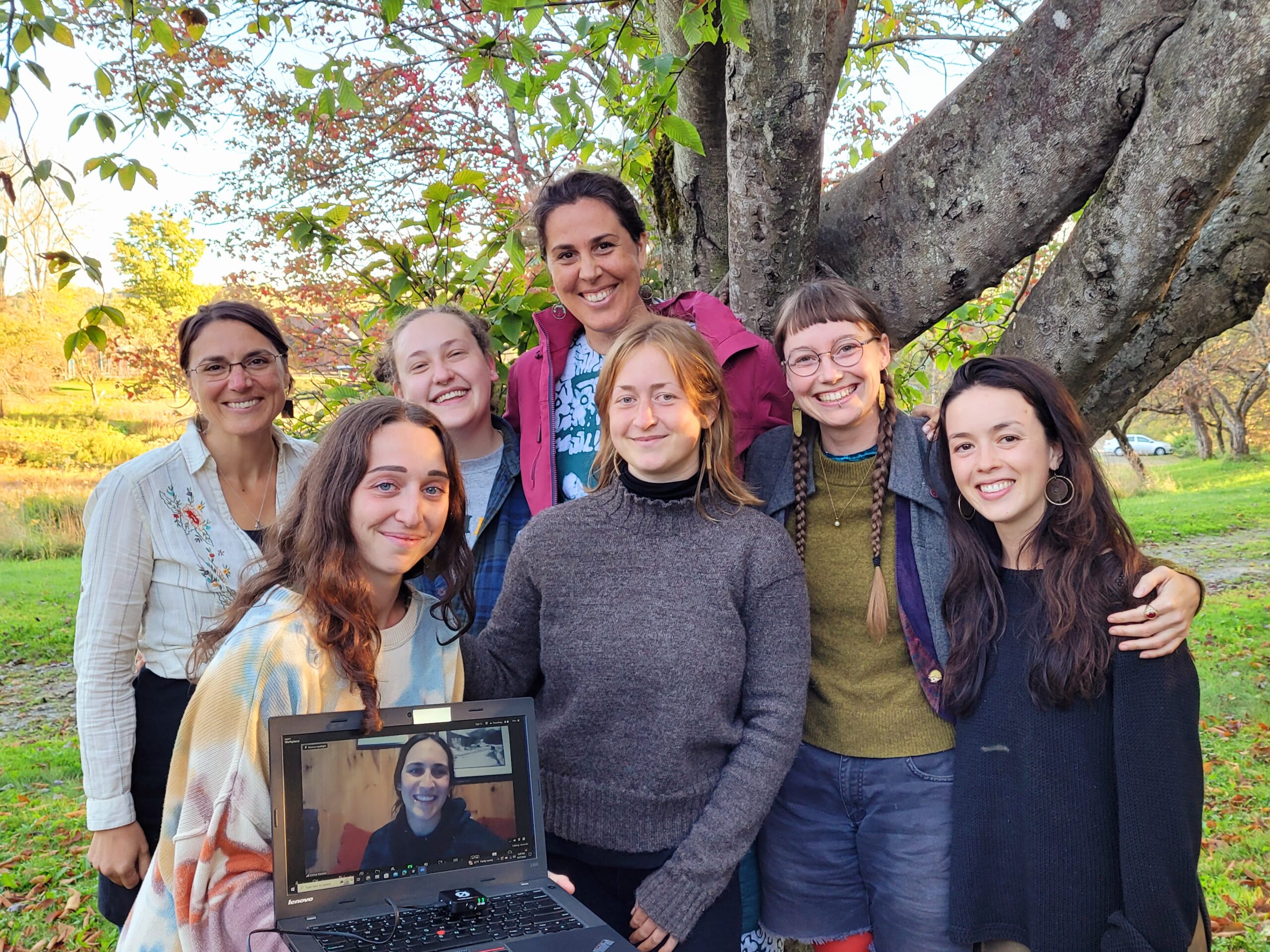
Year 3
Business Development (24.75 hours)
Introduces the student to the tools necessary for cultivating a successful business in the field, and helps them develop their unique contribution. Students will identify their vision and mission for their future work, gain awareness of what could get in their way, and develop a business plan that works for them. In addition, students will learn how to effectively and respectfully reach the folks who could benefit from their work (aka marketing), and how to price their work so that they can support themselves while remaining accessible. The intention of this course is for students to begin to develop the personal and business confidence needed and to identify the necessary resources to support themselves after graduation.
Clinical Roundtable (60 hours)
Roundtable is an opportunity for students to review and discuss open clinical cases, ask questions and share resources and feedback with staff and fellow students. Both primary intern herbalists and their partners will present cases from the student clinic.
Materia Medica III (85.75 hours)
Continued Review of 61 additional botanicals, including: botany, harvesting, identification, preparation, dosage, indications and contraindications, phytopharmacology, energetics, historic and modern use, sustainable use, and relevant research. Students will research and prepare an in-depth and publishable monograph.
Pathophysiology and Therapeutics III (59.5 hours)
Review of the pathology and detailed discussion of associated herbal and nutritional therapeutics for cancers, generative system concerns, infectious, inflammatory and environmental pathology, life stages and selected conditions common in herbal practice. Course lectures will focus on clinically relevant strategies and differentiations for practice along with regular assigned case studies.
Relational Culture III (20 hours)
A continued exploration of the theory and practices of Relational Culture, intended both to support a generative, inclusive learning environment and to build a shared foundation for herbal work that’s rooted in ecological and social interdependence, celebration of difference, and collaboration towards mutual liberation. Developing clinical skills shaped by a relational lens will be a particular focus.
Supervised Clinical Practicum (319.75 hours)
This course is an opportunity for students to gain practical clinical experience in a supervised clinical setting. Students will schedule their own clients drawn from their community, and see clients during student clinic shifts at VCIH, two days each week. Additional clinical opportunities may be available as community requests dictate. Core faculty, along with other carefully chosen professional herbalists, will oversee all consultations and guide students in developing case notes, formulating assessments and devising herbal protocols, dietary suggestions and referrals. Students will gain additional experience by sitting in as partners during their peers’ consults in the student clinic. Students will learn the skills of virtual clinical work and become proficient in utilizing an electronic health record system. Course hours reflect 120 hours of direct client contact, while the remaining hours are spent doing case development and review with clinical supervisors.
Teaching Practicum (8.75 hours)
The ability to effectively share information with the general public is a skill with many benefits– from building one’s practice to community service. Organizing a presentation, writing curriculum, speaking skills, use of digital platforms and more will be covered.
Understanding Western Tools (29.25 hours)
Introduction to some basic diagnostic tools used by the “Western” medical system: lab results, imaging, physical exam. Students will practice reviewing and understanding the information many clients bring with them to consultations and learn how to effectively and confidently communicate with medical practitioners. The course will familiarize students with the purpose of tools such as the stethoscope, blood pressure cuff, glucometer, and urinalysis.
“The second year of the VCIH program has given me a much better understanding of traditional energetic systems and their application, while at the same time broadening my understanding of the patho-physiological basis of disease.”
– Justin Garner, Clinical Herbalist student
View the book list for the Clinical Program here. Many of these titles are available via our online Bookshop.org shop, a non-profit online bookseller that supports independent bookshops and donates 10% of sales to us.
Clinical Program FAQs
Yes and No. We’re committed to continuing to offer in-person and on-the-land experiences at VCIH on the beautiful former Goddard College campus. But, being in-person is no longer required for our Family or Clinical programs. We use a “low-residency” model, which means a significant portion of the curriculum is offered online, via live Zoom classes, and about a quarter of the curriculum is offered in-person for those who can travel to intensives. So, students who are able are invited to join us in “residence” during 2 intensives each year, or they can attend these intensives virtually, in real time, via hybrid classroom technology.
This format is different from many online programs in which students go at their own pace and engage with other students and faculty via forums. Instead, our programs use a cohort model where all students move the curriculum simultaneously, attending classes live and interacting with each other and faculty in real time, each week. We focus a great deal on building community and student relationships and our students tell us that they are surprised by how engaged and connected they feel, despite being online.
- Year 1: Wednesdays, 9-5 ET
- Year 2: Thursdays, 9-5:30 ET and Fridays 9-5 ET. There are also 6 Saturday sessions, meeting about once per month, approximately 10 – 5 pm ET.
- Year 3: Mondays, 1-8 ET and Tuesdays, 9-6 ET
Most days include a 1.25 hour lunch break plus multiple 10-15 minute breaks throughout the day and between classes.
Yes! We take two weeks off in May, three weeks off in August, one week around Thanksgiving or Indigenous People’s Day. The year ends mid-December and, for folks continuing into future years, classes start again in mid-February.
There are three 6-day intensives each year of the program. The first takes place online at the start of the year (mid-February for all students) and two hybrid in-person/online summer intensives occur in May/June and August/September, depending on which year of the program you’re in. Applicants are given exact dates with their acceptance letter.
There are three intensives each year and attendance at each one is required. The orientation intensive in February is offered online for everyone, while the summer intensives are offered in hybrid format, both in-person and online. You don’t have to attend these in person. You can also choose to attend some intensives in person and some virtually.
We highly encourage students to attend at least one intensive in person, but we understand that there are a variety of reasons that may not be possible for everyone.
We understand that the expense of travel and housing during intensives, in addition to taking extra time off work or extending childcare, even when attending remotely, adds to the expense of the programs. This is, in part, why we don’t require folks to attend in person, so that they can minimize added expenses, as needed.
We use Zoom for Education, an expanded-capacity and more secure version of Zoom, coupled with GSuite for Education (aka Google Workspace), which we have been using for the past 10 years to host student email, a robust online classroom platform, school calendar, student forum and document storage.
All classes will be offered as synchronous, interactive, live content and will also be recorded and provided to students for review or make up. All classes are closed captioned and auto-transcribed, as well.
You will need access to a computer with high speed internet during class days and throughout each week. Hard-wired connections (vs. wifi) work best for Zoom, if possible. We strongly recommend students use laptop or desktop computers with cameras and audio enabled, as phones and tablets do not support the full functionality of Zoom or Google Classroom, both of which are required for participation in live classes, note-taking, and for completion of homework throughout each week.
Yes, student clinic is virtual. Clinical interns in the third year see clients and receive supervision while remaining in their home communities and working with clients in any location. All clinical appointments are online; students do not have the option to see clients in person as part of their supervised internship.
The Family and Clinical programs require live attendance at 65% of classes; you can complete up to 35% of classes asynchronously by viewing the recording and completing an additional make-up assignment. But this is a very participatory learning environment, with regular class times and assignments, and regular attendance is a requirement of both programs.
We strive to create an environment and community that is inclusive and affirming of diverse ways of learning and knowing, is trauma-sensitive, and acknowledges the barriers often present in traditional learning environments for disabled, chronically ill and neurodivergent folks. We also recognize that financial limitations, caregiving, and other individual and systemically-driven circumstances can impact student access to learning. While we can’t always mitigate these barriers for students, we strive to create flexible, supportive, and empowering experiences for the widest range of learners possible with the resources and skills available to us.
The foundation of our learning environment is the relational culture we build with each cohort, which prioritizes interdependence while embracing difference. While our programs are structured and academically rigorous, students are encouraged to engage material and assignments according to their strengths and learning goals. We foster a collaborative, non-competitive classroom and guide students to share resources and strategies for learning. Faculty are available to support students in tailoring assignments to their needs and deadlines can be flexed with prior communication. When circumstances prevent students from attending live, we have a system to support engagement after-the-fact (though this option is not unlimited). We have a teaching assistant and Academic Coordinator available for individualized academic support, while faculty advisors support students’ personal journey through the program. Students also meet each week with their advising group to connect and offer and receive resources and care.
While our online format is intended to expand access to a broader range of students, we also recognize that for some, the online format is itself a barrier and limits access to our programs. While we regret this impact, we have chosen to prioritize making herbal training (especially at the clinical level) more broadly available to the widest range of communities and locations beyond Central Vermont.
You can read our full accessibility information sheet here. Applicants and current students are also invited to ask any questions they have or request additional supports at any time. We do our best to be transparent about what we offer, the nature of our virtual and physical spaces, and the limitations of our structure and staffing. Please reach out if you need information we haven’t provided.
You can find a detailed description of our policies and practices here. By enrolling in any of our programs, you are agreeing to abide by these policies.
The tuition reflects a rate of $13/classroom hour for Herbal Roots Apprenticeship and $15/classroom hour for Family and Clinical Programs. We recognize that the total cost of attendance is significant and may appear to be higher than that of other advanced programs. We recommend researching the total number of classroom contact hours of all programs you are considering and comparing hourly rates for the most accurate cost comparison. In our research, we’ve found other live online or in-person clinically-oriented programs charge between $15 and $28/contact or classroom hour. While our per hour cost is at the bottom of this scale, the number of hours we offer is significantly higher than most other programs, increasing our tuition accordingly.
Books and materials are not included in the cost of tuition. Costs for the Herbal Roots Apprenticeship are approximately $100; costs for the Family Herbalist and Clinical Herbalist programs are roughly $300/per year (not including expenses for the camping trip in year two of the Clinical program). You can find a sample book and materials list here to give you an idea of what to expect. (Please note this is ONLY A SAMPLE list. The current list will be provided upon enrollment.)
Yes. The curriculum covered during intensives is included in program tuition. However, travel, meals and housing while at intensives is not included.
There are numerous housing options in the Montpelier-Plainfield-Marshfield area (AirBnB, campgrounds, hotels) and our local student community is often generous in hosting visitors. Students are responsible for locating housing during intensives and housing expenses are not included in tuition.
Yes! VCIH offers BIPOC Reparations and Need-Based tuition reduction opportunities. Visit this page for more information and to apply.
Applications should be completed at the same time as the admissions application. Unfortunately, tuition reduction is limited, so students must submit applications on time to ensure consideration.
The application process for the Family and Clinical programs are the same, so you’ll complete the application in the same way, regardless. We interview each student individually and discuss at that time where you might fit best, based on your goals and experience and our understanding of the programs. So, no need to do anything differently, though you can feel free to mention in your application essay that you are curious about whether your current experience might qualify you for advanced standing.
Once our application deadline has passed, new applications will be placed on a wait list and you will be contacted if an interview slot becomes available.
Check out our detailed course comparison chart here.
